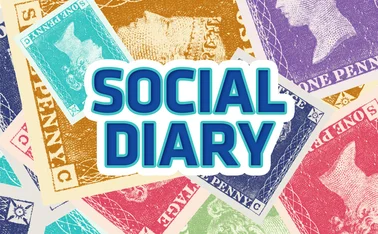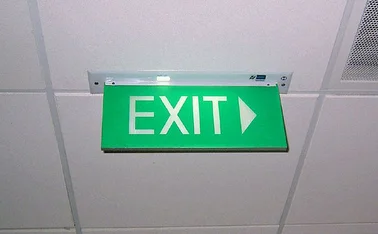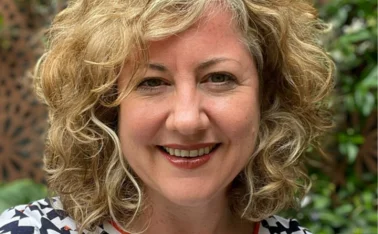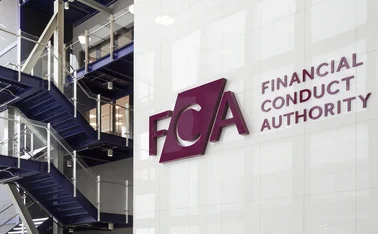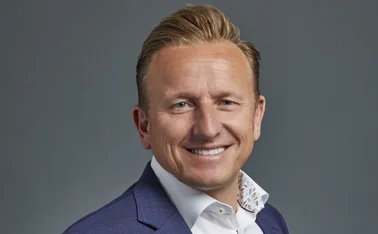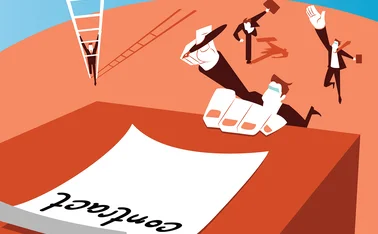
Structural change: interview with Chartis UK MD Nicolas Aubert

Chartis' restructure put London at the heart of the firm's European operations, and UK managing director Nicolas Aubert is convinced recent structural changes will produce only profit and improved performance.
June will see Nicolas Aubert mark his 10th anniversary working for AIG, having been headhunted from running Ace's French property and casualty operations back in 2002 to become deputy general manager of France for the US giant.
And if the insurer were to follow its recent form in European reshuffling, he would probably be gearing up for yet another new role this summer.
After all, Aubert was only appointed UK managing director of Chartis, AIG's international general insurance business, last July - but that was a mere 12 months after he was promoted to MD of southern Europe, amid a major restructure that saw London selected as its new regional headquarters.
He replaced James Shea, who went off to take up the new position of president of global speciality lines, with Shea himself only having been in post a year.
He had succeeded Lex Baugh, who was named Chartis' chief risk officer and head of strategic planning in January 2012 - his second new role since vacating the UK MD position in 2010.
But Aubert is adamant the UK management merry-go-round stops with him. He intends to lead the business for a minimum of five years and his strategy reflects one of significant but steady, medium-term ambition.
Aubert made this multi-year commitment to running the UK business on 1 December 2011 - the same day Chartis Insurance UK Limited was renamed Chartis Europe Limited.
This is part of the overall legal restructuring that began in June 2010 and will, by December this year, create a single European entity spanning 25 countries with London as its head office.
"Solvency II makes it fundamental to align capital, strategic leadership and risk appetite," comments Aubert.
"It's critical we have one business model, which is the internal model we are building, to be consistent across the entire geographic zone."
So is he still confident that AIG will let him be the one to finally close that revolving door and become the longest serving UK MD since its parental troubles of 2008 and the subsequent rebrand to Chartis?
"Definitely. In three months I will beat my predecessor Jim; and in 15 months I will have beaten Lex," he quips.
"But seriously, yes, that is absolutely my game plan. I believe we have a fantastic opportunity to drive this operation forward with significant ambition - but in order to do that efficiently, we need to do it progressively.
"We need to take time to structure things that are really solid, robust and well thought through."
He cites his priorities as developing growth opportunities for the UK, securing profitability, returning to innovation, creating stakeholder benefits by better harnessing intellectual property to develop market insight, and achieving operational effectiveness and efficiency.
Britain's got talent
"What is very clear for me is that the Chartis franchise in the UK is based on an incredible talent pool of people who are very experienced and knowledgeable and I would like us now to really bounce back, and leverage all those raw materials in order to see Chartis developing itself in the UK," says Aubert.
"We have been doing a very good job over the past couple of years securing what we have and our strengths in leadership areas but now it is time to redeploy those strengths, become more innovative than our competitors and help clients and brokers develop growth opportunities for themselves."
He believes there is currently a "fantastic opportunity" to refine the UK business model, building on its scale and diversity to create a better servicing structure for clients and brokers.
"We have a workstream called UK Transformation which is a 24-month project. Usually we are accustomed to short-term activity projects in Chartis but this one is orientated to strategic thinking in order to make sure we reset ourselves to support the business we will have in the future."
In December, he also revealed an ambition to become, by 2015, the ‘most valued' by the insurer's five main stakeholder groups: its clients, brokers, employees, regulators and shareholders, asserting that this would be properly quantified.
But how does he intend to measure progress towards such an aspiration? "Fortunately I've given us a few more years to get there," he jokes.
"But the value of this vision lies in being able to question our stakeholders on what values they are really looking for. When we have cracked that code, then we will be able to measure them.
"What is interesting is that when we first engaged our stakeholders in this conversation we had some immediate response.
"But, very rapidly, the vast majority told us they wanted to rethink and rephrase - so the great thing is that this practical process is actually helping our stakeholders think with more gravitas about what they really need to obtain from us, and thus generate value for themselves.
"This is not just a conceptual process but it is complex. So we are giving ourselves the time to do it well."
The bottom line
Of course, talk of strategy, stakeholder value and better servicing structures are all very well but the barometer of success will always be the financial results.
In February, AIG revealed that Chartis had chipped away at its underwriting losses in 2011 - cutting the combined ratio to 109% from 116.8%. This week, the UK-specific results for the year ending 30 November 2011 paint a similar picture of improvement but not exactly wholesale success.
The underwriting loss may be down to £51.7m from £65.3m but it is still just that - a loss. Profit after tax has also shrunk to £11m from £101m. So how does he view the results himself?
"When you look at the profit you can clearly see there has been a reduction between 2010 and 2011 - whether that's before or after tax; the movement on them is slightly different but it is a decrease," he said.
"Yet in terms of what has been generating these decreases, it is not related to what I would qualify as the underlying results."
For example, he attributes the net profit fall in large part to a change in the treatment of group tax losses as well as the impact of asset valuation on its investments.
Chartis has also stressed that profit before tax and net unrealised gains and losses on investments increased from £16.8m in 2010 to £58.8m in 2011.
In addition, a £50m investment was made in major projects, designed to deliver process efficiencies - the insurer claiming that its combined ratio would be sub-100% if these project costs were stripped out.
"There is also a decrease in the loss ratio. This is already visible despite the fact the vast majority of our business is long tail, meaning that what we gain in a year is not only going to be replicable but also going to be multiplied in efficiency across future years," says Aubert.
"So it is quite satisfying for us to see that the underwriting discipline we have been focusing on for the past two years is already generating improvements."
That renewed focus on profitability has led to two areas of retrenchment - most notably in solicitors' professional indemnity, where its decision last year to stop writing new business saw its market share shrink from 18% to just 8%.
The other area where it has pulled back due to profitability problems is in Chartis Combined - a packaged product business model designed for the middle market.
"This segment is very important to our future in the UK but we recognise that we didn't have it right with regard to the operational platform," explains Aubert.
"The intention was good and still is - but we need to be more efficient internally and externally. That's true from a profitability standpoint and an efficiency one for our customers.
"We are not at the level we need to be to offer a good service or decent level of competitiveness. So, while we have not withdrawn, we have significantly reduced our size in order to progressively reposition ourselves and re-enter this market in the future."
However, he stresses that Chartis Europe has "absolutely no appetite" to become a generalist player.
"It is true that we are now a very large company but I would like us to be seen as a multi-specialist, and that is something we need to do better in the middle market areas where we have credibility and legitimacy, where we can provide a different solution to the rest of the market," he says.
He describes the forthcoming creation of a single European legal entity as a "masterpiece, positioning Chartis in Europe as one of the most important P&C carriers".
But the latest bit of restructuring came in January, when Chartis announced it was splitting into three major geographic areas - the Americas, Asia, and Europe, Middle East & Africa - with immediate effect.
At the time, it stated the reorganisation would have no impact on UK jobs - only to confirm in February that 130 roles were set to be cut.
Re-aligning resources
So how does Aubert reconcile these conflicting statements and can he offer reassurance that no more jobs are at risk in the UK?
"We decided to realign our resources around the portfolio and, if you look at the UK, it has been slightly reducing in size over the last two to three years.
"So the impact on jobs is a retrospective correction. We have just aligned to the top line and what we want to sustain in 2012.
"However, we decided to be very transparent with our staff and that meant we depicted the worst case scenario - the potential loss of 130 jobs. That was the fairest thing to do when we were explaining why we had to reduce our expense base.
"But I can already say at this stage that we know we are not going to cut more than 110 - and we are doing a good job in realigning our resources from areas where we have been shrinking to areas where we are growing.
"The staff are conscious of this but of course it is difficult and sensitive, which is why we carrying out a lot of internal communication, over and above that necessary by consultation."
Could the final figure of job losses be less than 110? "I hope so. I can't commit to a figure but want to be clear on the fact we are making our best efforts and have already proven that by saving 20 jobs, which is significant out of 130. We have the opportunity to do more in the coming weeks and months," he says.
With the UK keen to grow and innovate once more, will there finally be an end to all the shake ups? Can Aubert confirm that, following the European restructure into a single entity and January's overall geographical split into three major global areas, Chartis is finally done with all its reorganisation?
"Our strategy is based on building value for our stakeholders. And it is quite obvious that the value they are looking for is a very flexible one, allowing them to evolve within the environment in which they organise themselves," he says.
"So we would never say that we are done with restructuring because that would be madness. But we do know we need to make ourselves, our people and our stakeholders comfortable with the fact that we are about change.
"Our goal is to permanently adjust to whatever is the best position at any given moment in time."
Nicolas Aubert on...
...getting away from it all
"I love sailing and we keep a boat in Brittany. Being on the sea is my passion; it's where I can really breathe. It's also the only place where AIG cannot reach me! My wife once took great pleasure when we were on vacation in saying to the person calling my BlackBerry that I was on the water and could not talk."
...diversity, after lamenting last October that only 11% of UK directors are women
"I head up the diversity initiative for Europe and we are currently building some key performance indicators that will be applicable across Europe. We don't want to work with specific targets, as we don't want to be hampered by them, but we do want to be able to demonstrate and measure progress. This is a journey that will take time and we don't have a magic formula, but diversity positively affects employee engagement, and developing it is one of my personal goals."
....being the first insurer to back Shariah-compliant broker GNL Insurance, when it launched last July
"This kind of initiative is part of our continuous momentum to build niche capabilities. There will be other initiatives directed at specific groups, loyalties or affinities as we seek to better identify different needs, ways of buying and using insurance across the consumer and corporate universe."
Financial fundamentals: UK 2011 results of Chartis Europe
Gross written premium
Down 4.5% to £2.15bn (2010: £2.25bn)
Net written premium
Down 3.3% to £1.17bn
Underwriting loss
Improved by £13.6m to £51.7m (2010: £65.3m)
Loss ratio
Improved 2.3 percentage points to 68.8%
(2010: 71.1%)
Expense ratio
Increased to 34.8% (2010: 33.1%)
Combined ratio
Slight improvement to 103.6% (2010: 104.2%)
Profit before tax
£51.9m (2010: £95.4m)
Profit after tax
£11m (2010: £101m)
Only users who have a paid subscription or are part of a corporate subscription are able to print or copy content.
To access these options, along with all other subscription benefits, please contact info@postonline.co.uk or view our subscription options here: http://subscriptions.postonline.co.uk/subscribe
You are currently unable to print this content. Please contact info@postonline.co.uk to find out more.
You are currently unable to copy this content. Please contact info@postonline.co.uk to find out more.
Copyright Infopro Digital Limited. All rights reserved.
As outlined in our terms and conditions, https://www.infopro-digital.com/terms-and-conditions/subscriptions/ (point 2.4), printing is limited to a single copy.
If you would like to purchase additional rights please email info@postonline.co.uk
Copyright Infopro Digital Limited. All rights reserved.
You may share this content using our article tools. As outlined in our terms and conditions, https://www.infopro-digital.com/terms-and-conditions/subscriptions/ (clause 2.4), an Authorised User may only make one copy of the materials for their own personal use. You must also comply with the restrictions in clause 2.5.
If you would like to purchase additional rights please email info@postonline.co.uk
